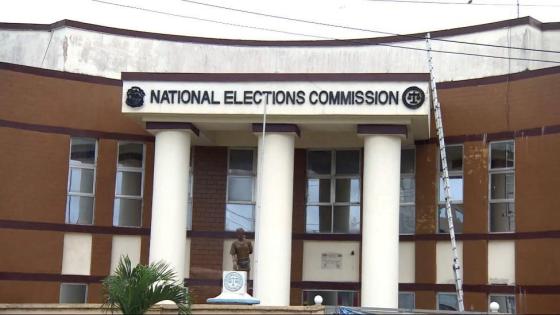Liberia: No Proof of Citizenship, No Vote

— Says NEC in stringent measure for October 10, 2023 Polls
Millions of Liberians across the country are cautiously anticipating the upcoming presidential and legislative elections, but they should brace themselves for a shocker from the National Election Commission (NEC).
In an unprecedented move, the Commission has announced that a citizenship identification card will be required to obtain its biometric voter card, which millions of Liberians need in order to vote in the October polls.
The move, however, would infringe on the democratic rights of millions of Liberians, but the Commission believes this is the only way potential voters can prove beyond every reasonable doubt their Liberian citizenship.
According to the NEC, this is no longer the provision of pieces of verbal evidence but now substantive ones — National ID Cards as proof of citizenship for biometric voter registration.
The NEC earlier this month announced that the first phase of the nationwide voter registration would commence on March 20 and will run up to May 11.
This pronouncement has already started evoking fear among Liberians and leaders of political parties. The crux of their fear is that many Liberians may be left disenfranchised should the NEC go ahead with its reliance on the provision of national identification cards before Liberians are registered for the electoral process.
The NEC earlier this month announced that Voter Registration would commence on March 20 and run up to May 11, 2023, noting in its guidelines that every potential voter will have to provide proof of Liberian citizenship. “The NEC also determines the acceptable types of IDs, among which are birth certificates, passports, and national ID cards,” the NEC stated in the announcement.
However, the concern among citizens and opposition political parties is that not many citizens, especially in rural Liberia, may have access to the national ID cards. Opposition politicians have begun speaking against the move, which they feel is a clever way to disenfranchise its members and give the ruling party an undue advantage. The two top opposition political institutions, the Unity Party and the Collaborating Political Parties (CPP), are not taking any of these lightly.
The Chairman of the CPP, Musa Bility, termed the NEC's proposed move as "nonsense," adding that the CPP wouldn’t listen to such a measure. He noted that the CPP would not accept such a mandate.
He also spoke against NEC officials using the accent of a person to determine if he or she is a Liberian—a move he believes is only intended to deny certain people the opportunity to exercise their democratic rights.
“We will not accept anything outside of the Constitution,” Bility told reporters on Monday. “Is there anything in the Constitution that says “Liberian Accent” is the requirement for citizenship?”
UP Secretary General, Mr. Amos Tweh, said that he is confident that all opposition political parties are going to speak with one voice and disagree with NEC on the issue, “and we’ll make sure we take appropriate actions on that to make sure people are not disenfranchised.”
He disclosed that his institution has raised the issue with the NEC, but the electoral body insisted that the National ID Cards would be the primary proof of citizenship, and that a potential voter must have a typical Liberian accent.
“Having the National ID Card before someone can register, it would be a disservice and it would be a disadvantage to our people, especially in the rural areas, and even in urban areas. There are many people in Montserrado who have not taken a National ID Card,” Tweh said.
He noted that the NEC would be deceptive if it insisted on the use of national identity cards for registration and that the Party would resist such a move.
“NEC said they’re going to relax the driver's license and National ID cards as requirements,” he emphasized.
However, some Liberians believe that that measure will not work as the National Identification Registry does not even have the capacity to register the almost 2-3 million people across the country who have reached the age of eligibility to register.
The registry has not been able to register even a million people since it began operations more than four years ago, with the majority of the people captured so far concentrated mostly in urban and peri-urban areas. With the majority, if not all, of the rural population left uncaptured, many are of the belief that the NEC's new measure cannot be used as a major requirement for the October elections.
With an estimated population of 5.4 million people and an estimated voting population of about 2.5 million, only 605,000 people have enrolled in the National Identification Registry. This means over two million potential voters may not have means of proving their citizenship when required during the Biometric Voter Registration.
Experts say the NEC would also need equipment that reads the biometrics on the National ID cards for authentication in order to prevent people with fraudulent cards from being registered to vote.

